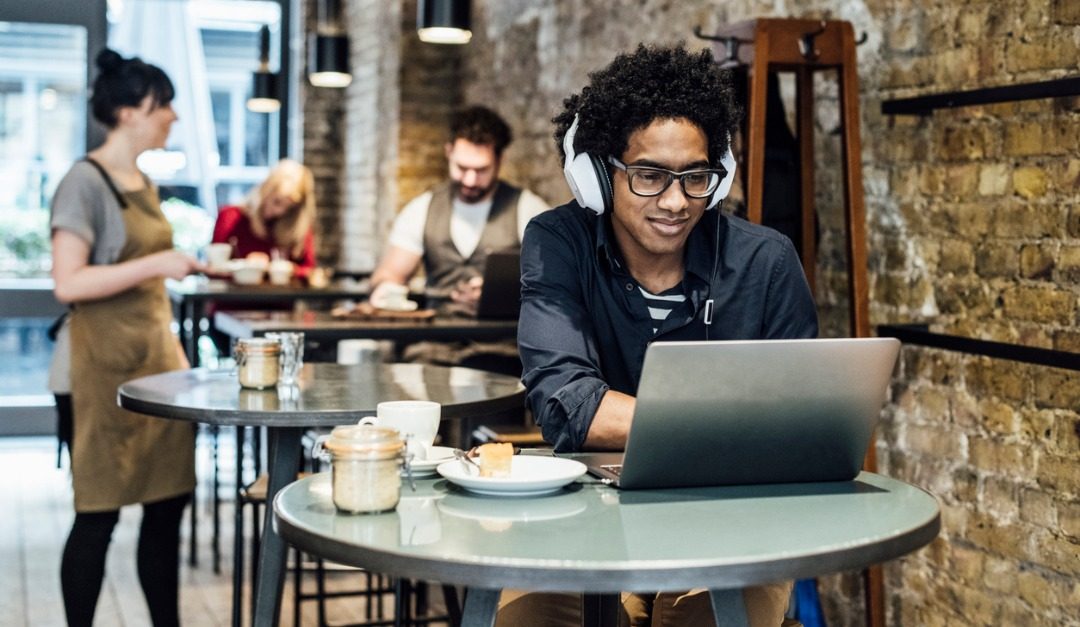Public WiFi networks make it easy to stay connected wherever you are, but many of them pose security risks. Before you use a public network, make sure you understand how to keep your personal data safe.
Risks of Public WiFi
On your home network, data is encrypted. Even if someone is within the range of your private WiFi network, that person can’t see what you do online. Public WiFi networks usually aren’t encrypted, which means anyone in range can view your online activity, even if you need a password to log in.
Sometimes hackers create a fake public WiFi network with a name that seems legitimate to trick people into using it. They may intercept private data as it travels between users’ devices and the public WiFi router or infect users’ devices with malware.
How to Keep Your Data Secure
The best way to stay safe when using public WiFi is to utilize a virtual private network (VPN) that connects your laptop or phone to a secure server and encrypts data sent and received. A VPN can also mask your IP address to conceal your physical location. Before you choose a VPN, do some research. It’s better to pay for one offered by a reputable company than to choose a free one that may be unsafe.
If you can’t use a VPN, only visit encrypted websites starting with “https,” as the “s” stands for “secure.” The connection between the browser and server will be encrypted to protect your data. If you use an unencrypted “http” connection, other people will be able to spy on you.
A 4G-enabled cellphone can connect you to the internet via your cellular network, which is encrypted and therefore safer than public WiFi. A VPN can also work on your cellular network. Your cellphone bill may be higher than usual, but it beats becoming a victim of identity theft.
If you must use a public WiFi network, use one offered by a business you trust. Ask an employee for the name of the network to make sure you choose the right one, not a fake network created by a hacker.
Many businesses that offer public WiFi require people to provide personal information, including their name and email address, and sometimes their physical address and phone number. This is done to acquire information for marketing purposes, but hackers could also steal it. If a company requests too much information, or if you’re uncomfortable with the terms and conditions, consider waiting to use the internet somewhere else. Never use a public WiFi network to complete any financial transaction.
Turn off the file-sharing option on your device so a hacker can’t access your files or send you a file containing malware. Keep your device’s firewall enabled and your antivirus software up to date.
Stay Safe Online
Public WiFi is convenient, but many people don’t understand how risky it can be. Your safest bet is not to use it at all, but if you must connect to the internet, take precautions to protect your personal data.






VPNs are very handy when using public networks, but that’s only if the VPN is secure. Subscription VPNs like ExpressVPN and PIA have very high security.
A LOT of people don’t get how dangerous public wifi can be, of course, it won’t happen to everyone but if it happens the damage can be insane. I’ve read articles where people lost all of their savings just because they logged their bank account details while they were on public wifi. As it is mentioned in this article, VPNs’ are the way to go. Personally I’ve been using NordVPN (an affordable, lots of servers, compatible with Netflix, VPN) Just because it offers a lot of stability and security towards such things. To be fair, VPNs like ExpressVPN are good but are more expensive while they are offering fewer servers, proxies are great too (but are a lot slower). The safe route would be avoiding doing personal things through Public WiFi, using temp emails and different passwords for every account.